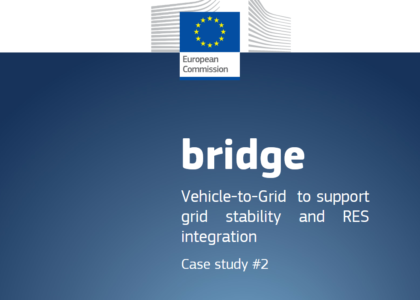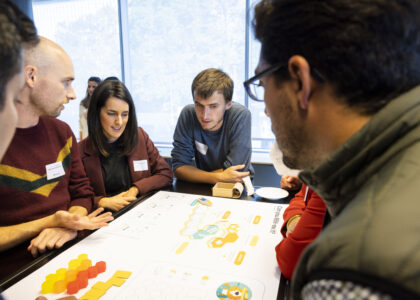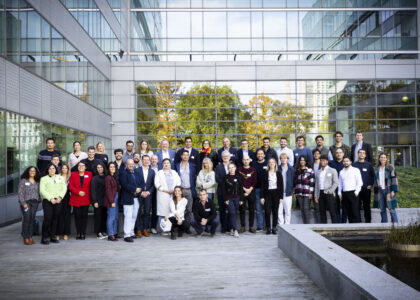by Rebecca Hueting, RENAISSANCE dissemination team – Deep Blue Italy
In our Greek pilot site, the DUTH University Campus hosts more than 500 students who are selected through income or other socio-economic vulnerability criteria. The accommodation of students is provided without charge. A part of the electricity is generated by rooftop PV panels, while the thermal energy demand of the students’ residences is covered by a Renewable Energy System installed within the campus. Last year the VUB research team and DUTH partners organised a series of MAMCA workshops to collect end-users needs and criteria for the evaluation of future energy system.
At project start, the potential end-users (both consumers and prosumers) of emerging Local Energy Communities in the four pilot sites were engaged in the Multi Actor Multi Criteria Analysis to evaluate energy ecosystems, promote participation and build consensus around site-specific new business cases. In the video below Maria Luisa Lode (VUB) and Pantelis Botsaris (DUTH) explain Kimmeria’s students how the methodology is applied within the RENAISSANCE approach and how the online multi-actor-multi-criteria analysis questionnaires are structured.
According to Maria Luisa Lode, researcher at VUB and author of the peer-reviewed paper “Application of Multi-Actor Multi-Criteria Analysis for Transition Management in Energy Communities”, applying the MAMCA methodology to Energy projects allows to define and capture the diversity and variety of Local Energy Communities (LEC). The scenarios used for the MAMCA can take up the different characteristics, such as legal and organizational characteristics, sources of renewable energy, number of members, legal restrictions, and costs. MAMCA scenarios can be re-defined during the stakeholder workshop at a stage when stakeholders are more informed about potential scenarios and the local energy transitions as a whole or during a second TM cycle.
Read the full paper
Currently a team composed by VUB and CERTH researchers and developers is working on the ReEnergise tool: a multi energy site analysis tool already to optimize LES configuration. The tool will use the open-source public data available from the Vrije Universiteit Brussels (VUB), turning energy flows between nodes into monetary values and spatial information to help assess profitability of new business models. As a result, for any type of microgrid considered, it will provide citizens aiming at the constitution of Local Energy Communities an informed guidance and help increase overall efficiency.
Read more about our methodology
Read all news about Kimmeria’s Pilot
Don’t miss our next Pilot’s story, on this website news section soon!
Follow us:



